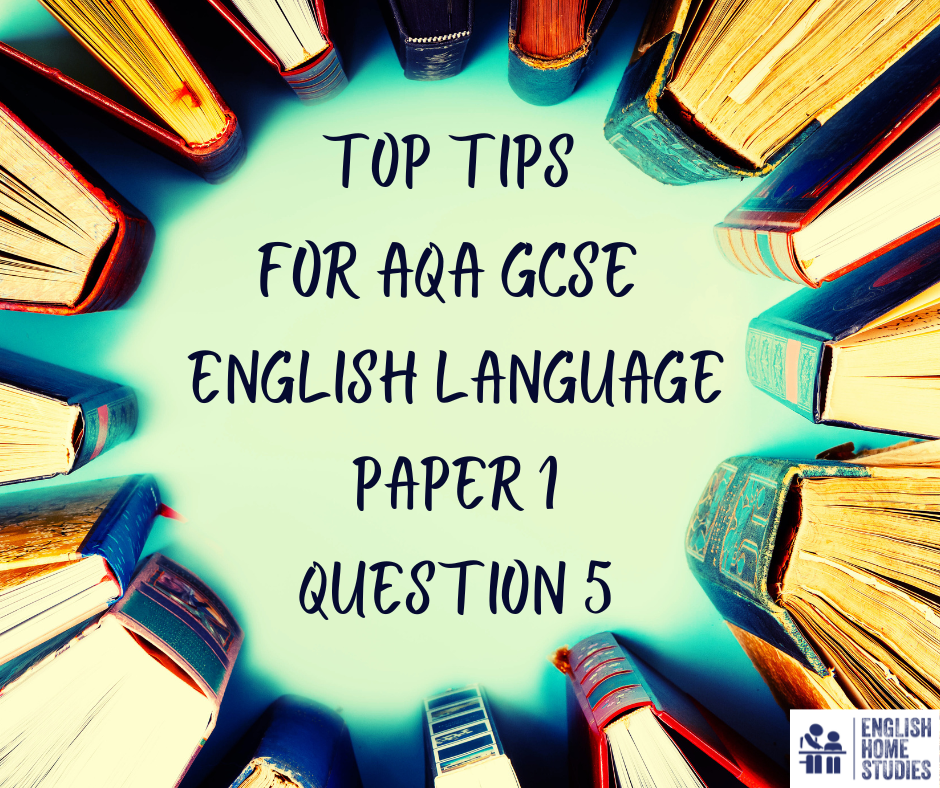Top Tips for AQA GCSE English Language: Paper 2, Question 5
- Jul 28
- 5 min read
Updated: 4 days ago

Paper 2, Question 5 is the persuasive/transactional writing task and is worth a hefty 40 marks. Getting this right can make a huge difference to your final grade.
This is where you’ll show off your ability to communicate with purpose: to argue, persuade, inform, or advise while using language and structure effectively.
Unlike some of the AQA GCSE English Language exam questions, the format of Question 5 won't change dramatically from September 2026. You’ll still choose from real-world writing tasks, such as letters, articles, speeches, or essays. However, the mark scheme places an even stronger emphasis on audience awareness and crafting a clear viewpoint. Your writing really has to sound like it belongs in the real world.
What Does Question 5 Involve?
You might be asked to:
Write an article for a broadsheet newspaper arguing for or against something.
Write a speech to persuade your classmates or a local community group.
Write a formal letter to an editor, school, or organisation expressing a viewpoint.
The task will always include a prompt statement, such as "School holidays are far too long and should be reduced." You will be expected to give a viewpoint, using evidence, examples, and persuasive language.
How Should You Approach Question 5?
1. Make Sure You Understand the Task
The first step is to quickly identify the audience, form, and purpose. Who are you writing to? What’s the format? Are you persuading, informing, or advising?
2. Plan Your Structure and Content
Think of your response as having three key parts:
Opening
Grab attention with a strong statement, rhetorical question, or surprising fact.
Middle
Aim to write 2-3 paragraphs, each focused on a clear point and supported with relevant examples or reasons.
Ending
Finish strong and end your letter or speech with a memorable final line or call to action.
3. Use Persuasive Techniques
A few well-chosen techniques work better than throwing in every one you know.
Try:
Rhetorical Questions
“Do we really want to look back and wonder why we didn't do anything?"
List of Three
“We need action, we need hope, and we need it now.”
Direct Address
“You have the power to make this change.”
Emotive Language
“This is not just unfair - it’s heartbreaking.”
4. Adapt Your Tone
Your tone should reflect the task. Keep asking yourself, "Would this sound right if I read it aloud to the intended audience?" For example, a letter to a headteacher should sound formal and respectful, while a speech might be more passionate and conversational.
5. Leave Time to Check Your Work
At the end of the exam, you're going to feel tired and that's understandable. However, before you throw your pen on the table, cross your arms and lie your head down on the desk, spend some time proofreading your work.
In particular, ask yourself to pay close attention to:
Have I used correct spelling, punctuation, and grammar?
Can I change any of the simple vocabulary to something more complex or sophisticated?
Have I used a variety of sentence lengths and combined short, powerful sentences with longer, more flowing ones?
Are my paragraphs clear and is there a logical progression in my argument or explanation?
Example Question
AQA GCSE English Language: Paper 2, Question 5
Write a speech to persuade young people to volunteer in their local community.
Imagine a street with no friendly faces, no neighbours saying hello, and nobody stepping in to help you when you need it. That’s the kind of world we’re creating if we ignore each other. However, one small act of volunteering (even just giving up a few hours of your time) could change that. Today, I want to share why helping your community isn’t just good for others; it’s good for you too.
Why Is This Effective?
“Imagine a street with no friendly faces…” is a rhetorical technique that sparks emotion and helps the audience to visualise the scene.
“One small act of volunteering…” is an example of the positive, motivational tone of this extract. The word "small" emphasises that people don't need to make huge, time-consuming gestures to make a difference.
The use of direct address in, “I want to share why helping your community…” engages the audience and makes them feel that the speaker is talking directly to them.
Writing Tips for Paper 2, Question 5
Before you write, make a brief plan. Even though you're worried about running out of time, a few minutes jotting down 3 or 4 key points you want to cover will help you gather your thoughts. This will make the writing process easier and ensure your response feels structured from the start.
Start with a strong opening that hooks the reader or audience, such as a question, a surprising fact, or a bold statement. For the same reason, try to include a memorable ending line by closing with a line that leaves your audience thinking.
Your tone doesn't need to sound overly formal, but at the same time, avoid being too casual. The best advice I can give you is to aim for a confident, natural voice that fits the form and audience.
Use connectives like “Furthermore,” or “On the other hand,” to link your points smoothly. This will guide the reader through your ideas and show clear progression.
Aim for 5 or 6 well-developed paragraphs, each with a clear purpose, such as an introduction, a few focused arguments, and a strong conclusion.
Final Thoughts on AQA GCSE English Language, Paper 2 (Question 5)
This exam paper is challenging, but you should try to think of it as your chance to show examiners that you can take a viewpoint and express it with clarity, confidence, and flair. Again, make sure you remember to plan your answer before you start writing. A well-structured response, sprinkled with a few clever techniques, will always stand out.
Unsure How to Start Your GCSE English Language Revision?
You might like my 30 Day English Language Revision Challenge.
It's designed for the 2026 AQA spec and includes 30 daily tasks you can complete in 30 minutes or less. These tasks will help you practise the skills you'll need for Paper 1 and Paper 2, including creative writing prompts.
Found This Useful? You’re In The Right Place.
The EHS Blog contains a variety of useful guides to help you master GCSE English Language and Literature.
Whether you’re revising key texts like Macbeth and An Inspector Calls, tackling tricky language questions, or brushing up on your essay skills, there’s plenty more to explore.
Head back to the EHS Blog to keep your revision on track!
Could You Use a Little Extra Help With GCSE English?
Join my email newsletter, and you'll get free study tips, revision shortcuts, and exclusive discounts sent straight to your inbox.
It takes less than a minute and could be the easiest revision decision you make this year.

About the Author
I’m a private tutor, a former secondary school English teacher and the founder of English Home Studies. In addition to offering 1:1 tuition sessions for students from 9 - 16 years old (Year 5 - Year 11), I also create digital and printable revision guides and activity packs
I often post advice and links to free and affordable English resources on the English Home Studies Facebook and Instagram pages and, if you have a child in KS3 or KS4, you might like to join one of my Facebook groups.
If you would like to find out more about my qualifications and experience or read some of the lovely reviews I've received from previous clients, please have a look around my website. If you have any questions, please send me a message. Many thanks.




